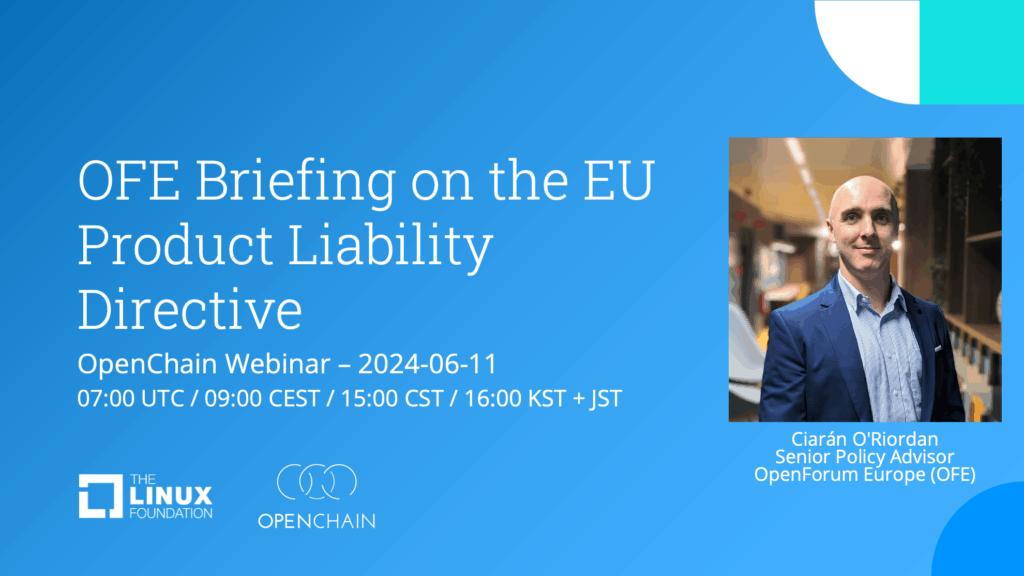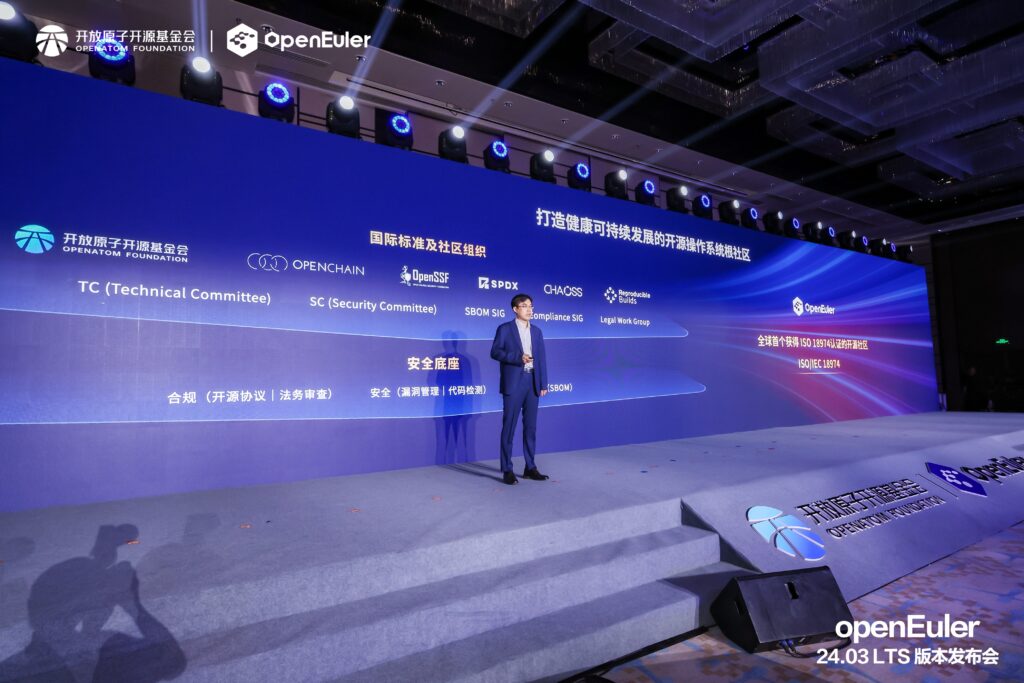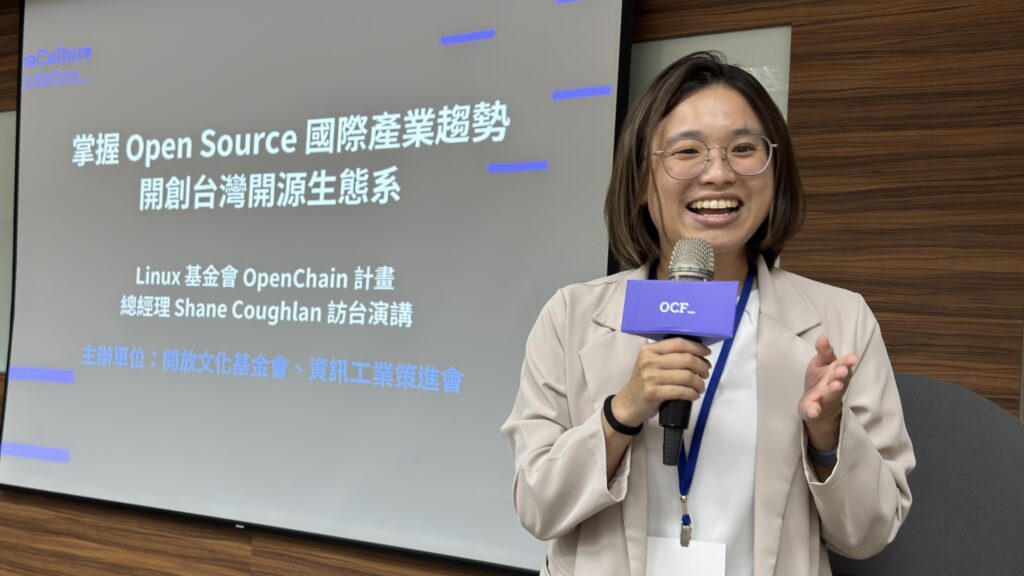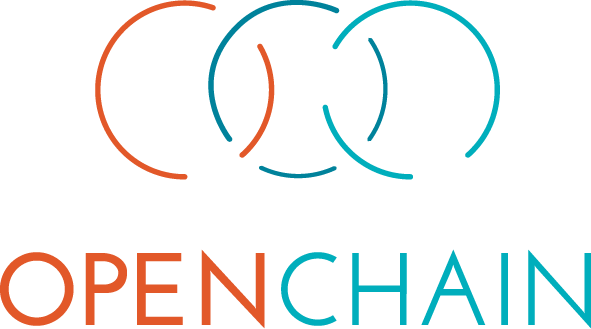
On the 11th of June 2024, 07:00 UTC there was a special briefing from OpenForum Europe (OFE) on the EU Product Liability Directive. It is part of a series provided by OFE on European policy matters that impact open source, business processes and risk management.
More Details
“European Union reached provisional (political) agreement on the text for the proposed revision of the EU’s Product Liability Directive 85/374/EEC (PLD). The PLD establishes a strict liability (i.e., no fault) regime to enable claimants to seek compensation for defective products across the EU, meaning claimants do not need to establish fault to claim successfully. As a result, it is the preferred way of making product liability claims in the EU. The revision is a significant development, as the PLD dates back to 1985 and has been virtually unchanged for nearly 40 years – with only very minor amendments in 1999.”
https://products.cooley.com/2023/12/21/new-product-liability-laws-one-step-closer-in-europe/
Our Speaker is Ciarán O’Riordan, Senior Policy Advisor at OpenForum Europe. His background is as a free software / open source software policy and communications expert.
OFE is a not-for-profit, Brussels-based independent think tank which explains the merits of openness in computing to policy makers and communities across Europe. Originally launched in 2002 to accelerate and broaden the use of Open Source Software (OSS) among businesses, consumers and governments, OFE’s focus has since evolved to also cover issues related to Open standards, Cybersecurity, Digital Government, Public Procurement, Intellectual Property, Cloud Computing and Internet Policy.
https://openforumeurope.org/
More in the OFE Series
We held three special briefings from OFE for the OpenChain community from May to June 2024.
- You can check out the first webinar, covering the CRA, here:
https://openchainproject.org/news/2024/04/23/webinar-cyber-resilience-act - You can check out the second webinar, covering the EU AI Act, here:
https://openchainproject.org/featured/2024/05/30/webinar-eu-ai-act - You can check out the third webinar, covering the EU Product Liability Directive, here:
https://openchainproject.org/news/2024/06/13/webinar-eu-pld
More About Our Webinars:
This event is part of the overarching OpenChain Project Webinar Series. Our series highlights knowledge from throughout the global OpenChain eco-system. Participants are discussing approaches, processes and activities from their experience, providing a free service to increase shared knowledge in the supply chain. Our goal, as always, is to increase trust and therefore efficiency. No registration or costs involved. This is user companies producing great informative content for their peers.
Check Out The Rest Of Our Webinars
This OpenChain Webinar was broadcast on 2024-06-11.




